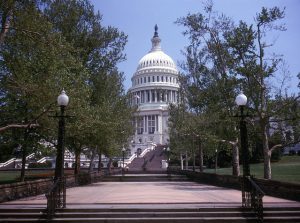In January, the state of California kicked off an online rollout of its marijuana inventory tracking system. At a glance, marijuana businesses across the Golden State appear to be successfully reporting product inventory each day, via the California Cannabis Track-and-Trace (CCTT) system. But not without some growing pains.
To start, the idea of tracking marijuana traveling throughout the supply chain sounds simple enough. In theory, all cannabis products would be given unique identification numbers, noting from which ‘batch’ or ‘lot’ they were born. Products would then be sent to labs for testing. Next, approved products would be passed from producer to distributor, and finally to retailers for sale. At each step, the state should be able to track each piece of marijuana as it moves through the chain, making sure nothing is being redirected out of state, and ensuring everybody is paying their required taxes.

But in practice, a few hiccups quickly come to light. First up, only businesses holding ‘provisional’ or ‘annual’ licenses are required to subscribe to the track-and-trace system. And until last month, there were more than 600 marijuana businesses operating on ‘temporary licenses,’ who would not have had to track-and-trace. This means, there was no way regulators could comprehensively account for every legal product moving about the state.
Continue reading
 Prosecutors for the U.S. attorney’s office in the Eastern District of California have launched a grand jury subpoena, calling for records from Californian marijuana based companies, including the parent company of Weedmaps.
Prosecutors for the U.S. attorney’s office in the Eastern District of California have launched a grand jury subpoena, calling for records from Californian marijuana based companies, including the parent company of Weedmaps. Cannabis Law Group's Medical Marijuana Legal Blog
Cannabis Law Group's Medical Marijuana Legal Blog








 Counterfeits keen to take a piece of the Californian marijuana market share are increasingly targeting cannabis product brands. And the cannabis vaping boom that has swept the marijuana landscape was soon followed by a spate of knock offs. Particularly concerning to big brand vape pen manufacturers including Kingpen, Heavy Hitters and Connected Cannabis Co., is that it’s very hard to discern between real and counterfeit products.
Counterfeits keen to take a piece of the Californian marijuana market share are increasingly targeting cannabis product brands. And the cannabis vaping boom that has swept the marijuana landscape was soon followed by a spate of knock offs. Particularly concerning to big brand vape pen manufacturers including Kingpen, Heavy Hitters and Connected Cannabis Co., is that it’s very hard to discern between real and counterfeit products.
 Marijuana supporters in California rejoiced late last month as legislation passed by the U.S. House of Representatives could afford the industry more freedom to grow. Currently, the recreational use and sale of marijuana is legal in California, along with 10 other states, and Washington D.C. But federal law continues to classify cannabis as a Schedule 1 narcotic. While it is yet to happen, this makes folks in the cannabis industry weary, as the door remains open for the federal government to prosecute against cannabis related businesses, even in states that have legalized marijuana.
Marijuana supporters in California rejoiced late last month as legislation passed by the U.S. House of Representatives could afford the industry more freedom to grow. Currently, the recreational use and sale of marijuana is legal in California, along with 10 other states, and Washington D.C. But federal law continues to classify cannabis as a Schedule 1 narcotic. While it is yet to happen, this makes folks in the cannabis industry weary, as the door remains open for the federal government to prosecute against cannabis related businesses, even in states that have legalized marijuana.